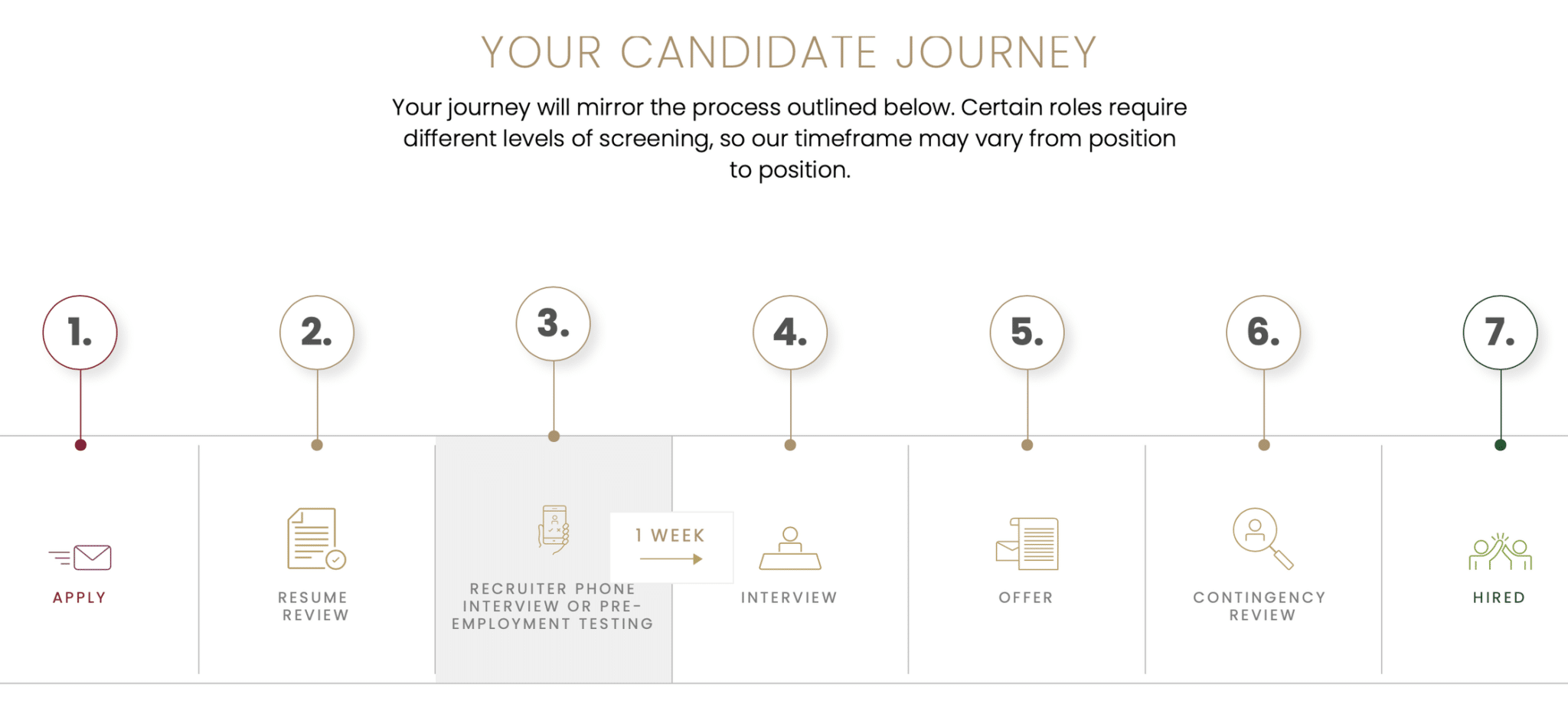Recruiting can be a very forward-thinking discipline. We are constantly looking towards tech and the future of AI to optimize how we hire candidates. But what if there was something so simple, and so obvious, that every single recruiter and talent leader could adopt it right now and it would transform their approach to candidate experience?
Let me tell you a short story…
Imagine you are applying for two jobs with Company A and Company B. Your process with both has been very similar; you’ve submitted your application, you’ve been moved on to screening, you’re in contact with the resident recruiter and they say:
- Company A: “We’ll get back to you in the next 7 days.”
- Company B: “We’ll get back to you in the next 14 days.”
Both reach out in 10 days. How do you feel?
Company B has knocked it out of the park! I wasn’t expecting to hear from them for another 4 days, that’s great! But I’m a little disappointed in Company A; I’ve been waiting around for correspondence and I’ve been left in the dark.
Positive candidate experience hinges on setting expectations and meeting them.
Super boring. Super simple. But super effective.
The Power of Expectation Setting
Recruiters are often so caught up in the pursuit of speed, they forget that clarity and consistency can trump this in the hiring journey. While candidates appreciate when processes and communications are returned quickly, if you set expectations, are clear about what’s to come, and meet these parameters, you’ll find that your applicants will be a lot happier and less frustrated.
As the late Tom Magliozzi once said:
Happiness = Reality – Expectations
It’s a pretty straightforward equation, but there’s truth in it. Candidates will always be happier when the reality of the situation is better anticipated. Unreasonably lofty expectations can be a huge recipe for disappointment. And too often in the hiring process, we don’t set realistic (or any!) expectations and this leads to dissonance. In the absence of structure, candidates will create their own expectations which you will invariably not meet.
Wendy Mayer, the VP of Candidate Experience at Pfizer, spoke to me about this on our podcast before, and she does a fantastic job of explaining this with her call center analogy:
What Does Great Expectation Setting Look Like?
It’s all well-and-good talking about expectation setting, but let’s dig into a real world example that really nails it.
Gallo does a superb job – after applying, candidates are sent to this external page where every step of the impending journey is mapped out in detail from time-frames to helpful interview prep documents and even advice videos from the HR team!

It may seem like such an obvious thing, but from a candidate perspective this is all working towards creating such a positive framing for the experience. And it goes beyond just the overarching process too – set expectations in your meetings and interviews. Reiterate how the first 10 minutes will be a Q&A space, and how you’ll then move on to 15 minutes of questions about these particular skills, etc. Help candidates understand what’s to come at EVERY opportunity and you’ll see how it drives satisfaction.
The Inclusivity Bonus
We’ve always said at SocialTalent that an inclusive candidate experience is a positive candidate experience. And expectation setting also falls into this criteria. Not only is it good sense across the board, it is so important when it comes to neurodivergent talent.
I had the pleasure of attending DEAMcon this year and got to hear the incomparable Bev Harp speak on this very topic. “We need really clear expectations,” she told the room:
“We need to know what’s going on. Autistic people do really well with being given rules and reasons. We have an idea of how it’s going to go and your contradiction without reason will likely cause confusion.”
And this can be simple things, like clear directions to the interview site, knowledge that the office is on the third floor, or that there’s construction going on so the candidate will have to park in a certain location. To be honest, it’s the kind of information and clarity that would make EVERY candidate’s life a little easier, but for those on the neurodiverse spectrum, these clear expectations are vital.
Are You Clear on the Expectation?
This is absolutely not rocket science stuff, but a little more attention given to setting expectations in the hiring process, and meeting these, can make a big difference when it comes to creating a positive candidate experience.
And remember, these expectations don’t have to be fiercely rigid. Things change and that’s totally fine, but remember to keep hiring managers and candidates aligned and in the loop.
Given the shortage of talent, there is a lot of discourse at the moment around how to best create a candidate experience that sets itself apart. People are experimenting with AI or rejigging traditional formats, for example. But 90% of this genuinely comes down to doing the simple and obvious things well – something so few hiring processes get right! By setting clear expectations and meeting (or exceeding) them, you are immediately creating a positive impression.
This article originally appeared in Johnny Campbell’s Talent Leadership Insights LinkedIn newsletter. Click here to subscribe!
The post The Simple Candidate Experience Hack that Your Talent Competitors are Using! appeared first on SocialTalent.
